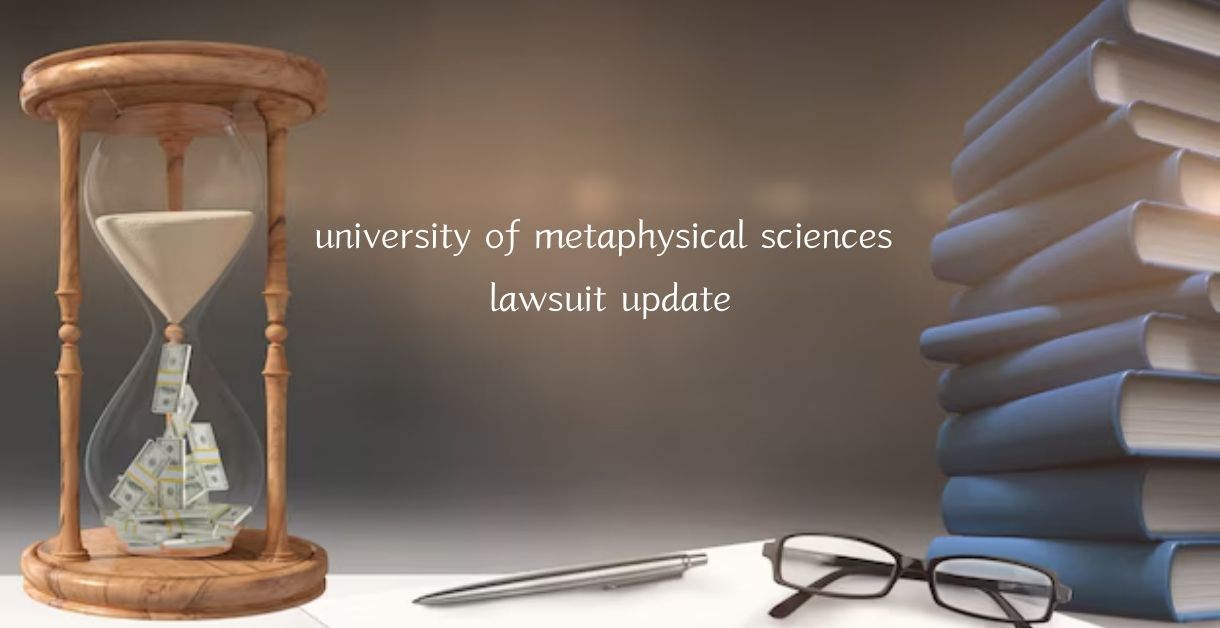university of metaphysical sciences lawsuit update(UMS), a leading institution in metaphysical studies, has recently been in the spotlight due to legal proceedings. This lawsuit has sparked widespread attention, raising questions about the institution’s practices, policies, and the implications for students and staff. Here’s a comprehensive look at the details, background, and updates surrounding the University of Metaphysical Sciences lawsuit.
Background of the Lawsuit
The lawsuit against UMS centers around allegations related to its accreditation, curriculum, and operations. Legal action was initiated by former students and associated parties, claiming discrepancies in what was promised versus what was delivered in terms of education and recognition of degrees.
Understanding the Core Allegations
The core allegations involve claims of misleading advertising about the validity of its programs and the recognition of degrees in professional and academic fields. Plaintiffs argue that the university overstated the credibility of its credentials.
What Led to the Lawsuit?
The lawsuit was reportedly triggered by complaints from students who discovered that the degrees earned at UMS were not widely recognized in traditional academic or professional settings. This led to dissatisfaction and claims of false representation.
Accreditation Issues Raised
Student Complaints and Experiences
Many students shared their experiences online, describing their dissatisfaction with the programs. They claim they were unaware of the limited acceptance of their qualifications and felt misled by marketing materials.
University’s Response to Allegations
UMS has firmly denied all allegations, defending its programs as transparent and tailored for those pursuing alternative education in metaphysical sciences. The institution has emphasized that it caters to a niche audience and that its degrees are not meant to replace traditional academic qualifications.
Legal Proceedings Timeline
The lawsuit has been progressing through various stages, with both parties presenting evidence and testimonies. Recent updates indicate that pre-trial motions are being filed, with a trial date expected to be announced soon.
Implications for Current and Prospective Students
The lawsuit has raised concerns among current and prospective students. Many are reevaluating their decision to enroll, focusing on understanding the limitations of the degrees offered.
Impact on the Metaphysical Education Field
Transparency in Marketing Practices
One key takeaway from the lawsuit is the importance of transparency in marketing educational programs. Institutions must clearly communicate the scope and limitations of their degrees to prospective students.
Support for Affected Students
In response to the controversy, several advocacy groups have stepped forward to support students affected by the lawsuit. They provide legal guidance and advice on how to navigate the situation.
Legal Framework Governing Alternative Education
The case has also shed light on the legal framework surrounding alternative education institutions. Unlike traditional universities, schools like UMS operate within unique regulatory parameters, which can sometimes blur boundaries of accountability.
Potential Outcomes of the Lawsuit
The potential outcomes of the lawsuit could include changes in university policies, refunds to dissatisfied students, or stricter oversight for alternative education institutions. The verdict could set a precedent for how such institutions operate in the future.
Public Perception of UMS
Public opinion has been divided. While some view UMS as a valuable resource for metaphysical studies, others see the lawsuit as a red flag for its credibility and practices.
Steps Taken by UMS to Address Concerns
In the wake of the lawsuit, UMS has initiated steps to rebuild trust. This includes revising its marketing materials, providing clearer disclaimers about its degrees, and enhancing student support services.
Conclusion
The University of Metaphysical Sciences lawsuit serves as a significant case in the field of alternative education. It underscores the importance of transparency, accountability, and clear communication between educational institutions and students. The outcome of this case will likely have far-reaching implications for the university and the metaphysical education sector.
FAQs
What is the university of metaphysical sciences lawsuit update?
UMS is an institution offering courses and degrees in metaphysical studies, focusing on alternative education.
Why is UMS involved in a lawsuit?
The lawsuit stems from allegations of misleading practices related to accreditation and degree recognition.
Are UMS degrees recognized in professional fields?
UMS degrees are typically recognized within niche metaphysical communities but lack recognition in traditional academic and professional fields.
How has UMS responded to the lawsuit?
UMS has denied all allegations and emphasized its focus on transparency and serving a niche audience.
What should prospective students consider before enrolling?
Prospective students should research the accreditation status, limitations of the degrees, and alignment with their career goals.











